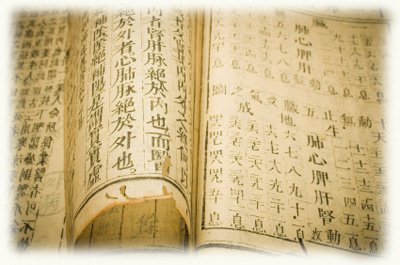
Visit our sister company

|
TCM Tips | Ren Xin Tang
TCM Tips

The history of Traditional Chinese medicine (TCM) dates back over 5,000 years ago, in Chinese ancient civilization, where it had formed a unique system to diagnose and cure illness.
The Materia Medica (本草綱目),
The epic book of Ben Cao Gang-mu (The Compendium of Materia Medica) is a major medical contribution by Li Shizhen, (1518-1593 CE), one of the greatest physician and pharmacologist of the Ming dynasty.
The book contains 1,900,000 Chinese characters and details more than 1,800 medicines, including 1,100 illustrations and 11,000 prescriptions, as well as a record of 1,094 herbs, detailing their types, forms, flavors, nature and applications in treatment. This book was one of the greatest contributions to the development of pharmacology both in the Chinese civilization and throughout the world. The Materia Medica has been translated into many different languages and remains as the premier reference work for Chinese herbal medicine.
 |
The Compendium of Materia Medica (Traditional Chinese: 本草綱目; Simplified Chinese: 本草纲目; pinyin: Běncǎo Gāngmù) is a pharmaceutical text written by Li Shizhen (1518-1593 AD) during the Ming Dynasty of China.
This edition was published at AD 1593. |
The primary goal of Chinese traditional medicine is to create wholeness and harmony within a person, allowing the mind/body/spirit to heal itself. Chinese philosophy states that there are two polar principles of life, yin and yang, and that are dialectically opposed to each other. Imbalances of yin and yang within an individual may be reflected as illness, because the body is considered a microcosm of the world.
Chinese traditional medicine defines the physiological components of illness using the concepts Qi (Vital Energy), xue (Blood), jin-ye (Body Fluids), jing (Essence), and shen (Spirit), as well as Organ Systems. Organ Systems are domains within the body that govern particular body tissues, emotional states and activities.
For example, as is the Western kidneys, the Kidney System manages fluid metabolism. In Chinese medicine, the Kidney System is also responsible for reproduction, growth and regeneration. The bones, inner ear, marrow, teeth, and lumbar area are all part of the Kidney System. Frequent urination, low back pain, and the emotional state of fear may be associated with the Kidney System.
Each Organ System has functions that are unique.
Chinese traditional medicine theory postulates that it is the internal ability of the body to remain strong that is the key to health. In this theory, people are born with a certain amount of Original Qi, which is easily depleted as energy is used by the body and not replaced. It is not easy to increase the Original Qi, and a person must work hard during life just to retain it. Chinese exercise programs — along with proper eating and sleeping habits — are highly recommended for maintaining Original Qi . According to Chinese medical philosophy, if a person consistently lacks sleep, lacks proper nutrition, abuses drugs or alcohol, or has excessive or unsafe sex, they become deficient in Qi and other substances. When weakened, the person is more susceptible to infection by harmful external pathogens.
|
|